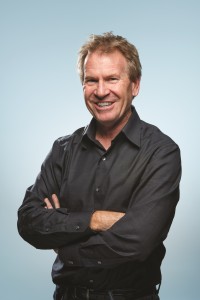D’Cota Dixon’s tenure with the Tampa Bay Buccaneers lasted less than two seasons. But Dixon was still fast, smart and, pressing 205 pounds, sturdy enough to take down NFL runners with names like Fournette and Henry. Which is why last summer Dixon was working out daily in Miami, determined to stay in game shape.
As suspected, the NFL came calling. Inquiries from the New England Patriots and the Detroit Lions confirmed that Dixon deserved a shot. So he took it.
Except it wasn’t with the NFL. It was with the American Raptors. Dixon is now a standout wing for the professional rugby team that recently inaugurated its 2022 season at Infinity Park, the 4,000-seat stadium built and maintained by the city of Glendale.
Glendale bet big on rugby 15 years ago as a foundation for revival, with then-mayor Mike Dunafon (briefly signed as a Denver Bronco in the late 1970s) theorizing the game and the stadium could elevate Glendale from a smallish enclave of cheap apartments to a vibrant community with a burgeoning tax base.
It worked. Glendale now boasts an impressive collection of upscale restaurants, gleaming office buildings and tony hotels – symbols of the renaissance Dunafon envisioned. Now, the city and the team it hosts are writing a similar script for the game itself. Rugby is getting reinvented, and players like Dixon are at the center of the transformation.
The concept is to recruit “crossover” players – athletes who typically grew up on a football field, not the rugby pitch. Nothing against the legions of rugby players from club and pro teams around the U.S., but Raptors director of recruiting Peter Pasque and Mark Bullock, the city’s GM and director of rugby, are convinced a new breed of athlete is needed. The end goal is audacious: Help infuse the U.S. National Team with enough talent to one day take on mighty international teams like New Zealand’s vaunted All Blacks.
The plan has its roots in a proof-of-concept from 2018. Inspired by a conversation with a Scottish rugby team, Bullock rounded up a group of ex-football players, and, in the space of a week, taught them the basics. Days later, they were holding their own by winning two of four games at the annual Aspen Ruggerfest tournament.
Bullock is now setting out to systematize the crossover concept. He and Pasque have been remaking the Raptors roster by tracking down professional and post-college football players who may not be NFL caliber, but aren’t far away either.
Dixon is one of them. He excelled as a safety at Wisconsin from 2014-2018, playing in 51 games and racking up five interceptions including a dramatic game clincher in a 2016 upset over LSU. The Buccaneers drafted him in 2019, slotting Dixon in at defensive back. Hobbled by a shoulder injury, Dixon lost his job in October 2020, but maintained faith he could still play among the elite.
It was Dixon’s roommate (and fellow Raptor) Justin Barlow who suggested Dixon think about playing rugby. Barlow had been tracked down by Pasque at one of the NFL’s regional scouting combines, and he was intrigued.
So was Dixon. Here was a chance to play professionally in a game that seemed to be rising on the sports scene. The Raptors weren’t offering NFL money by any stretch, but they were willing to pay: Roughly $40,000 per year plus help with living expenses, with a schedule that allowed for professional development. Dixon was intrigued by the chance to extend his athletic career and was impressed by Glendale’s facilities. There was also the game itself. It was fast-paced, it had fewer interruptions, it wasn’t as violent as the NFL, and it allowed Dixon a chance to do something he rarely got to do on defense: Run the ball.
“We recruit linemen and their eyes light up,” says Raptors head coach Paul Emerick, who played in three rugby World Cups over his career. “I get to tackle! I get to run the ball!”
Dixon also marveled at the scene that is rugby internationally. Raised in Miami, Dixon had not traveled outside the U.S. until last November, when the Raptors took off to Uruguay for a set of matches over two weeks. Dixon was stuck by fan fervor for a game that predates organized football (and, for that matter, basketball) in the U.S.
Making the Glendale dream real means more than winning games. Pasque hopes to forge closer ties with the metro-area business community, theorizing companies may want to sponsor players by offering professional opportunities. A chance to rise in the business world, not just the rugby pitch (that’s “field” to you and me) would represent one more lifestyle allure for athletes like Dixon, who earned an undergraduate degree in Rehabilitation Psychology.
Beyond the pitch, one positive force here is rising fan interest in rugby, especially among football fans. Pam Dunbar, Glendale’s director of marketing, targets NFL fans with geo-targeted digital advertising messages, aiming to build converts for the Raptor’s games, which are streamed live from the team’s website. And why not? To Emerick, there’s a built-in affinity between rugby and football. The key is to get the word out. “We have it in our sporting culture DNA,” Emerick says. “We just don’t know about it.”
 Stewart Schley writes about sports, media and technology from Denver. Read this and Schley’s past columns on the Web at cobizmag.com and email him at [email protected]
Stewart Schley writes about sports, media and technology from Denver. Read this and Schley’s past columns on the Web at cobizmag.com and email him at [email protected]
